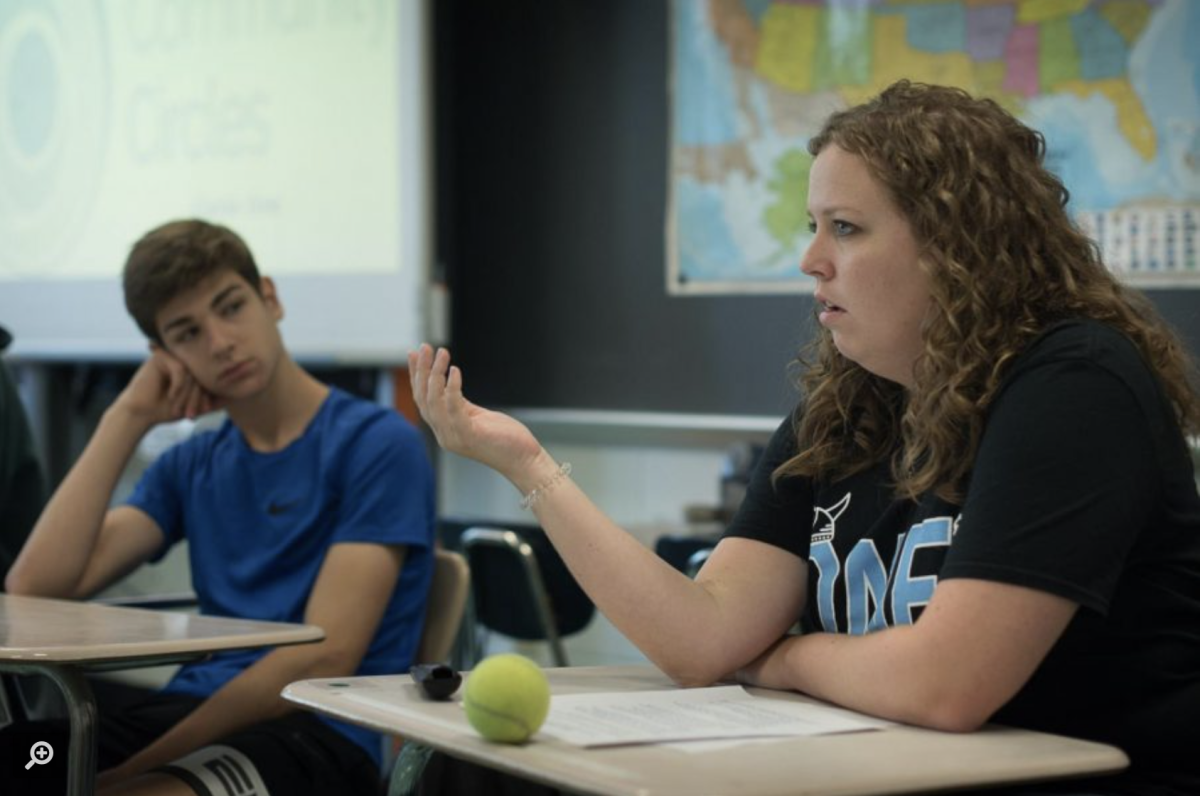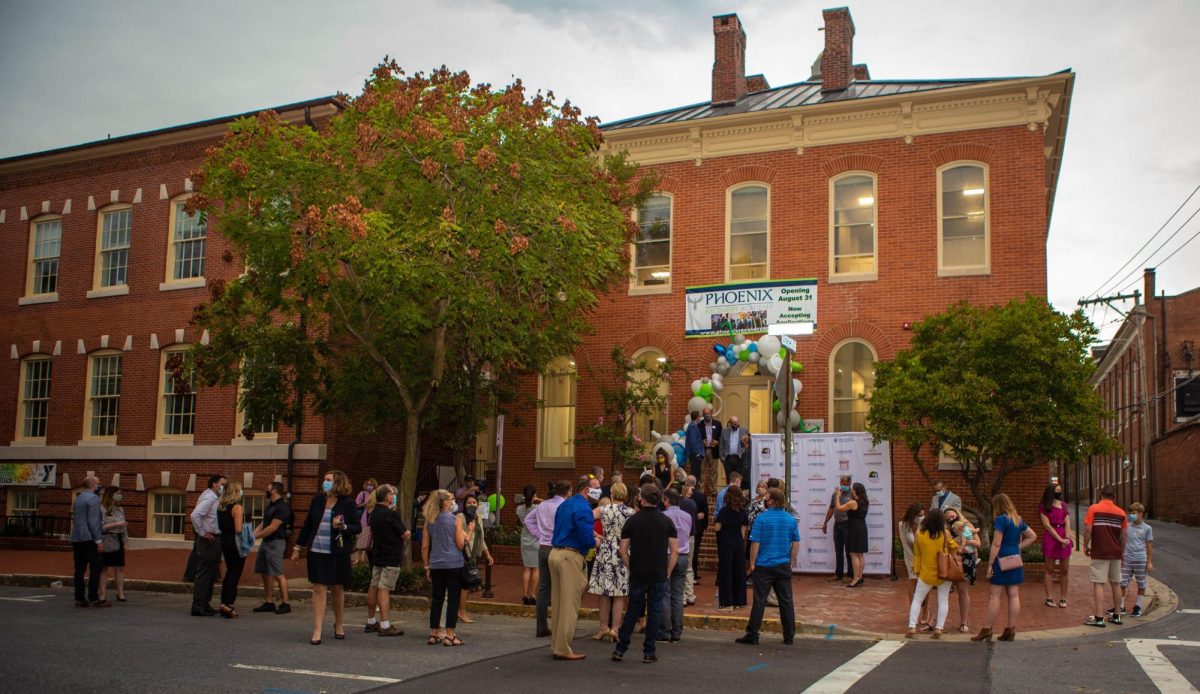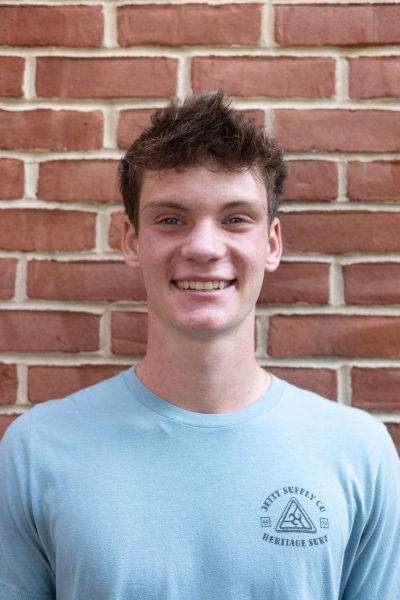Throughout history, speeches have played an integral role in shaping society. Abraham Lincoln’s Gettysburg Address gave meaning to the sacrifice of over 50,000 men during the Civil War, and Martin Luther King Jr.’s “I Have a Dream” speech influenced the government to take direct action in advancing civil rights. Speeches have been critical to social reform, and Whitman must recognize the impact that passionate speaking can have on students if they want to effectively educate them on civil improvement.
OneWhitman, the social awareness initiative launched by Whitman in 2019, is a student-led program highlighting social issues relevant to the school and surrounding community. Every Friday, students involved in OneWhitman meet to plan future lessons. All students are allowed to participate in the Friday meetings, and having students actively advocate for social reform is valuable for the Whitman community because it enables students to have some control over the environment that they are in. Over time, however, OneWhitman has failed to command students’ attention. To combat the lack of engagement, administrators should restructure OneWhitman into monthly assemblies where passionate and well-informed professionals speak to Whitman students.
A staff editorial written in 2020 about OneWhitman revealed that 80% of students said the program failed to achieve its goals. In the past four years, OneWhitman has become more structured, but students’ opinions remain the same. Junior class president Kavin Kachoria shared this sentiment.
“It feels like they aren’t making a genuine attempt to raise awareness for the pressing issues our community faces,” Kachoria said. “I just don’t think it’s captivating enough for the students to retain the information.”
The minimal engagement surrounding OneWhitman is largely due to lesson structure. Delivered by ineffective slideshows, OneWhitman presentations consistently fall short of their potential to provide in-depth explorations on topics concerning the school. One study by Harvard University found that using slideshows to deliver information is no more effective than verbal presentations with no visual aids. OneWhitman facilitators often read monotonously off the slideshows instead of using them as background information, resulting in low levels of student interest.
Facilitator Faith Gardener-Johnson said that lesson plans are often given roughly one to two days beforehand to prepare. Public speaking proficiency varies greatly between students, and some facilitators may need more time than others to prepare, but OneWhitman’s training doesn’t account for this. OneWhitman doesn’t give facilitators any training on proper communication with an audience. The program pushes aside important skills like navigating sensitive topics and instructs facilitators to tell a teacher when a student has an extreme reaction during instruction instead of teaching them to handle it themselves.
Many facilitators come from the Leadership Academy for Social Justice (LASJ), a selection of courses at Whitman that aim to educate students on becoming social leaders. LASJ requires most of its members to facilitate OneWhitman lessons. While this increases the number of facilitators, it fails to make sure every facilitator is passionate and motivated to craft and teach a successful lesson.
Last year, Marc Hausman spoke at an assembly on the dangers of fentanyl — a powerful synthetic opioid notorious for its high potency and potential for overdose — after losing his son Landen to an accidental overdose in 2022. While it should never take someone’s death to bring attention to an issue, especially the death of someone so close to the Whitman community, Hausman’s speech provides a powerful example of how personal experiences are what stick with an audience the most. His use of Landen’s story left an impact on many Whitman students, such as sophomore Rowan Conroy, in a way that OneWhitman never could have.
“That assembly made me realize that something that horrible can happen to anyone,” Conroy said. “It was an incredibly empowering experience.”
Public speaking is effective because it has immense emotional appeal and is widely recognized as difficult to execute. For a speaker to put themselves in such a vulnerable position means they truly care about the message they are trying to communicate. This resonates with audiences, allowing a speaker’s words to ingrain more effectively in their listeners.
“I could have come and said, oh my gosh, these are the threats, and this is horrible, and here are all the bad things that could happen,” Hausman said. “But admittedly, high school students hear that a lot… and I find that that tends not to resonate. In making the risk of substance abuse real, I tried to relate it to a specific story, a specific person, a specific family.”
Hausman is the CEO of a digital media marketing company and a stand-up comedian, roles which require exceptional public speaking skills, and he recognized the pitfalls of improper presentation.
“Unfortunately, a lot of presenters become dependent upon a PowerPoint and tend to just read the slides,” he said. “That’s a very mundane way of presenting information.”
Another successful Whitman assembly was attorney Debbie Feintein’s sexual assault awareness assembly in 2023. Feinstein used a clever analogy for consent by equating sexual assault to making someone drink tea that they didn’t want to drink. Her creative approach to teaching about sexual assault prevention was memorable for many Whitman students like sophomore Amanda Corpuel.
“The tea analogy was super interesting, and was so much more memorable than all the mundane lessons we’ve had on similar topics,” Corpuel said.
Some assemblies left lasting impressions, particularly on Whitman upperclassmen, including junior Sashsa Liderman.
“Two years ago this ex-convict drug addict came to speak to us,” Liderman said. “It was impactful having firsthand knowledge from someone who actually went through so much. It felt like he wasn’t trying to force a lesson on us but was instead helping us by sharing his experiences.”
Despite their effectiveness, the main issue with hosting regular assemblies is funding. Often, speakers have hefty fees. Luckily, Whitman has plenty of resources to find philanthropic speakers. The median household income in Bethesda is about $105,000 higher than the national average, and the suburb is home to many successful people with whom the Whitman community has connections. This year, Career Day — an event at Whitman where Whitman’s parents spoke about their professions — featured 10 unpaid speakers. For paid assembly speakers, students involved can work with Whitman Business Administrator Danielle Fus and the Foundation, the Whitman fundraising organization, to fundraise and allocate money towards hiring speakers.
Whitman’s strong passion for social justice has the potential to form a more cooperative student community. Students currently involved in OneWhitman can help recruit speakers, plan assemblies with them and even help them present. While restructuring OneWhitman into assemblies would require significant change, it’s a step in the right direction for ensuring equality and justice for all.


















